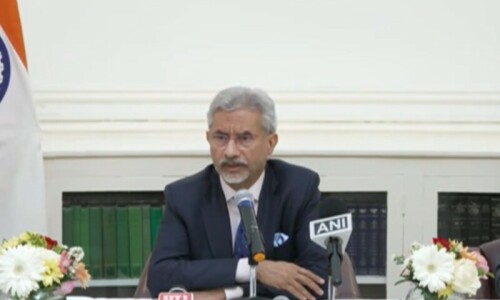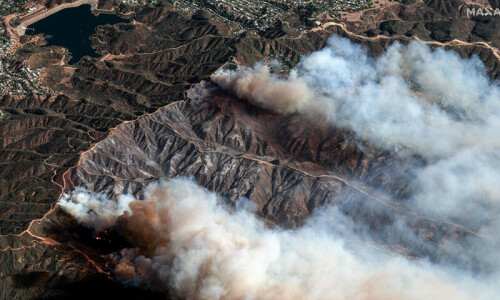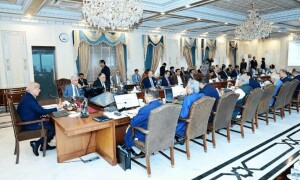ONCE again, Prime Minister Imran Khan has expressed his resolve to facilitate housing for low-income groups. Mr Khan recently stressed the significance of easy credit for enabling the poor to benefit from various housing options. The promulgation of effective foreclosure laws, controlling the urban sprawl, encouraging high-rise development and ‘upgrading squatter settlements with apartments’ were some ideas he put forward.
The intention is praiseworthy. It aims to address a major issue that past governments largely ignored. The number of urban dwellers is increasing fast. The majority of the new numbers belong to the lowest economic strata.
Research and evidence show many examples establishing a link between homelessness, crime and terrorism. Low-income groups in urban and rural settings in Pakistan face a major challenge. The numbers and types of vulnerable groups are escalating. The access to housing is denied on account of religious beliefs, ethnic origins, social orientation and even cultural preferences.
The poor pay for every service, but to the informal sector.
According to The State of Pakistani Cities Report 2018, 54 per cent of the total urban population live in the 10 largest cities namely Karachi, Lahore, Faisalabad, Rawalpindi, Gujranwala, Peshawar, Multan, Hyderabad, Islamabad and Quetta. It may be useful if the naya Pakistan Housing Authority, in consultation with the provincial governments, prioritises tasks essential to delivering housing to the urban poor. Stock-taking of suitable publicly owned land and its realistic pricing, planning for urban basic services, effectively targeting poor households in urban areas and instituting a workable mechanism for implementation at the district level are core considerations.
Katchi abadis require a careful review. Often the status and entity of katchi abadis is not understood. Katchi abadis are a response to the failure of the state to arrange housing for the low-income segments. The late social activist Perween Rahman called such locations ‘people’s settlements’ as they extended the right to exist to all. The absence of choice to live and work in cities has left the poor with no option but to build on any available piece of land.
Interestingly, when Pakistan was created and millions of new citizens from various parts of the subcontinent opted for urban housing, the resulting settlements were not termed katchi abadis despite their rundown appearance. The government of the time planned and delivered several schemes for rehabilitation. However, it could not keep pace with the huge influx of refugees searching for basic living options.
Meanwhile, over the years, economic compulsion has forced millions to move towards cities in search of jobs. State institutions, especially under military rule, never responded to the acute problems of housing faced by the new urban citizens, who had no choice but to help themselves, albeit in a disorganised manner. Haphazard squatter settlements sprang up in different locations. Government agencies attempted to bulldoze these but soon realised that it was an impossible task. Thereafter, the government took little notice, allowing the people to consolidate their living arrangements.
The process became technically sophisticated with the passage of time. Learning from earlier examples, katchi abadis adopted a grid iron rectilinear layout. Once the more favourable locations were saturated, desperate settlers swarmed the vulnerable ones. The phenomenon has continued.
It is often claimed that poor people need subsidies in housing which the state can no longer provide. This is not accurate. The poor pay for every service depending on where they live, but to the informal sector. Housing is acquired through payments to illegal entrepreneurs, building material providers and contractors. Security is accessed by giving money to musclemen of various profiles. Water is acquired on higher costs from vendors. In many cases, the poor end up paying more than the middle- or upper-income groups. The state, though aware, continues to do nothing.
Housing can only be delivered through efficient land markets under robust regulatory regimes. The proper governance of land and its transparent and judicious disposal are prerequisites to ensuring access of housing to the poor. Land cannot be regenerated. Its inappropriate usage must be checked. An effective means to deal with this issue is to institute an information base which provides facts that cannot be disputed. This would help streamline transactions, land use planning as well as preparations for overall development in urban contexts. It will also lessen corruption.
Modern-day markets require up-to-date information to create a level playing field for all stakeholders under a regulatory framework. Such an information base could be made available, initially, in a few cities such as Islamabad and Lahore, with right of free access given to all. It would help raise much-needed awareness.
The writer is chairman, Department of Architecture & Planning, NED University, Karachi.
Published in Dawn, March 18th, 2019












































